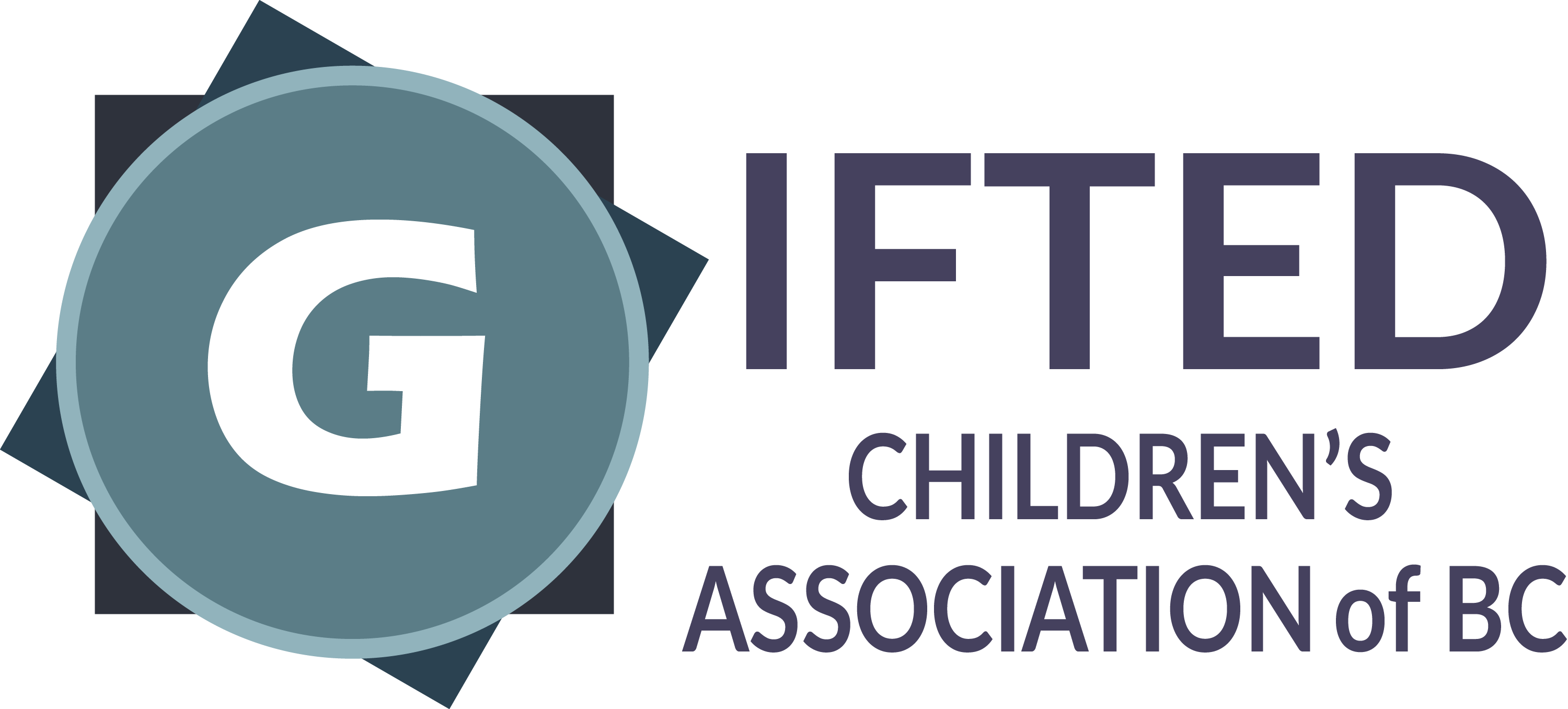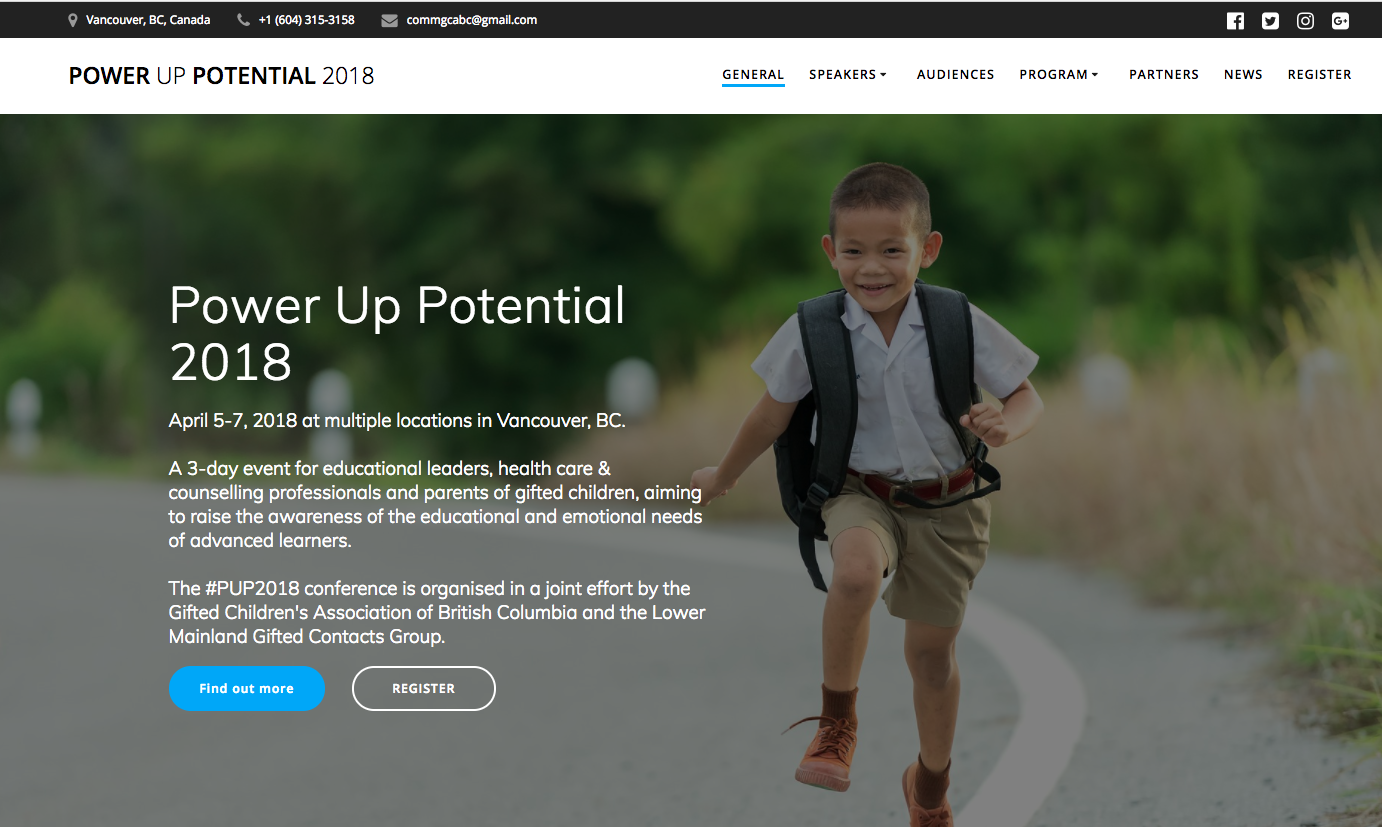By Maureen McDermid, Gifted Children’s Association of BC
Two organizations, the Gifted Children’s Association of BC (GCABC) and the Lower Mainland Gifted Contacts, an educator group (LMGC), that support and advocate for gifted learners have come together to raise awareness of gifted learners in our province. The purpose of this conference is to inform those who work with gifted students and those who nurture them by sharing the most current information we have about recognizing giftedness and supporting gifted potential.
The Gifted Children’s Association of BC has long been one of many parent support groups that operated in BC in support of students with special needs. Local chapters brought together parents in a school district or region to network, share and learn from each other and provide feedback to schools about how initiatives or programs were serving their students. It was a positive force in the community in many places across BC, energized in the early 90’s by the Ministry of Education’s decision to support the philosophy of inclusion of students designated as Special Needs, which was taken as a signal that all designated students would be receiving enhanced support.
In those day the language of inclusion was ‘integration’ and the intent was to include all learners in regular classroom settings, closing special education classes and programs. To support this move, many additional Education Assistants were trained and hired and specially trained teachers employed in schools as Resource Teachers to support integration. In addition, in recognition of the additional needs special education students needed, a system of reporting identified students and receiving additional grants to provide services was instituted.
Many of us who worked in schools and supported families with gifted children wondered how this would serve our students. While we could readily see the benefits for students in other categories of need who had been grouped together by designation so specific types of instruction could be offered efficiently, we wondered how this would benefit gifted students. Best practice in supporting the gifted category of special need includes having the opportunity to work with like-minded peers as well as providing a learning environment that offered the breadth, depth and pace for learning that these students needed. If classrooms and programs that gathered these like-minded learners together disappeared, how would that optimum environment and support survive in a very mixed ability class? However, the special education grants allowed districts to identify students and claim funding that provided for an array of supports and assignment of teachers with gifted special education backgrounds to work with and support identified students.
Awareness about and service to gifted learners has been in steady decline in our schools since 2002!
On January 3, 2015, the Vancouver Sun ran an article motivated by a visit of two journalists (Tracy Sherlock, Chad Skelton) to the TALONS program for gifted students at Gleneagles Secondary School in Coquitlam, BC. Subsequent investigation of the status of gifted education in the province resulted in the following findings:
- Students reported as gifted to the Ministry of Education has dropped by half across BC, from 2.5% of students to just 1.1% since 2002.
- Experts in the field agree that this is not because BC’s population became less intellectually able, but because gifted kids are no longer being identified
For example, in some districts, this drop was striking – where?
- Mission – the % share of gifted students rose steadily from 2002 to 2006, then in one year dropped to almost none!
- Surrey – in 2002, 2.7% gifted were reported, in 2014, 0.9%
- Vancouver – 2002, 5% reported, this past year, 0.7%
Coquitlam (third largest district in the province) is one of only 5 districts where the number of identified gifted students reported in the past few years has increased. The other districts are Delta, Revelstoke, Conseil Scolaire Francophone, and Haida Gwaii.
HOW DID THIS HAPPEN?
In 2002, the Ministry removed targeted funding to four categories of special needs students, one of which was gifted. Removal of this targeted funding meant that very quickly, those supports that had been in place because the funding required that it be spent on services to the students who were designated, stopped! Districts also stopped assessing and designating students because they reasoned that there was no option as there was no funding.
THE RESULTS
Fewer and fewer students were designated as gifted and fewer teachers acquired the knowledge and experience to identify and respond to their needs. And so today, the number of gifted students reported to the Ministry has dropped from a high of about 16,000 students in the later 90’s to a little over 3,000 today.
FAST FORWARD TO 2018! THIS IS WHY GCABC AND THE LOWER MAINLAND GIFTED CONTACTS EDUCATORS GROUP IS ORGANIZING THE POWER UP POTENTIAL CONFERENCE!
We need to raise the issues of
- appropriate environments and instruction for gifted students,
- the growing emergence of twice exception students – gifted and with a learning challenge – and,
- the increasing prevalence of behavioural and social emotional issues emerging with gifted students.
We invite parents, educators and health care and counselling professionals who support, report, diagnose and treat gifted students to join us and learn, network and organize in support of these learners. We look forward to seeing you!


